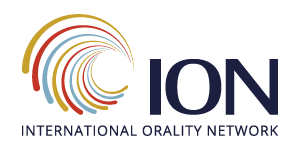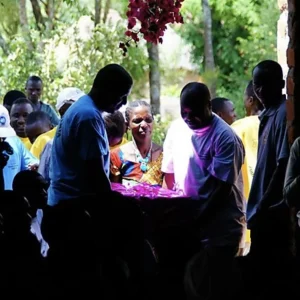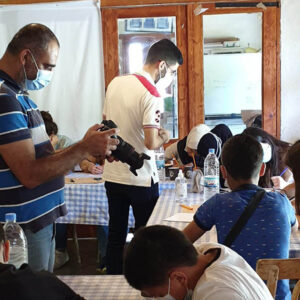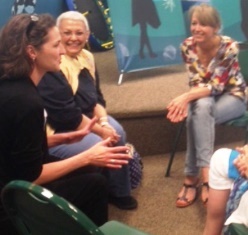
The Joy of Collective the Memory
HOUSTON, TX (ANS – June 2, 2017) — In a recent Orality Consultation and Advanced Training in East Africa, I was once again reminded of the power of networks and collaborative learning. The focus of this training was on developing leaders for Oral Cultures, in ways that would be reproducible to the least and last unreached people groups.
While the Orality Movement is progressively being recognized as a strategic development in completing the Great Commission, there are still those who have a very narrow view of its multiple applications. When Orality Trainers and Practitioners gather and share impact stories and experiences, everyone in the group learns new and different ways of spreading the gospel, making disciples and advancing the Kingdom of God.
To say that the Orality Movement is changing the face of church life and mission strategies around the world is not as much of an overstatement as some may think. Those who have been immersed in the Orality Domain for any length of time are continuing to be amazed, and sometimes surprised, at the power of simplicity. At the same time discovering the unlimited creativity of the Holy Spirit.
Now that increasing numbers of those in the academic community are becoming involved, we are realizing the depth and breadth of the movement and gaining a deeper understanding of how and why Orality is so impactful. For example, there are many disciplines that can help us understand the multiple aspects. Consider the areas of transportation imagery, action learning, performance communication, narrative transportation and many other academic disciplines that may not at first be recognized as part of the Orality Domain. Of course, the more obvious areas such as theology, psychology, sociology, cultural anthropology and various areas of missiology are vital to a comprehensive understanding.
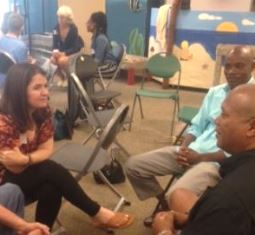
Participatory Learning in Action
Keeping First Things First
It is possible to get so deep into the academic aspects of Orality that we could possibly neglect the most important methods and strategies that are vital to reaching those who need it the most. They are the people of the world who can’t, don’t or won’t read, or the many who are Oral Preference Learners. In this learning journey, we are realizing that Orality Concepts, Principles and Practices are universal in their applications. Many well-educated people are still Oral Preference Learners.
As the body of knowledge and information in the world of Orality continues to grow and expand, it is critical that we remind ourselves that we in ION and the Orality Movement are primarily about two things: 1. Communicating the Gospel to everyone, everywhere, and 2. Making Disciples among all people groups. Furthermore, doing both in ways that are biblical, understandable, cross-cultural, international and reproducible.
Following the Jesus Movement
My friend Tim Timmons has said that the essence of the Orality Movement is the Jesus Movement. Not the Jesus Movement in the 1970s in the USA, but the original Jesus Movement, started by Jesus Himself. There are so many different expressions of God’s redemptive activities in the world today. However, because of our various cultural lenses, or limited worldview, we may fail to recognize them. We often remind ourselves that we all have tunnel vision, we just need bigger tunnels. We need God-sized perspectives, to recognize the unlimited and creative ways He can use us in His mandate to make Him known throughout the world.
God never intended for His call and commands to be complicated or complex. Following Jesus and making disciples is something every child of His can do. It is often no more than asking questions, telling our story and sharing God’s Story. One of my mentors from years past was the late Manley Beasley. He used to emphasize the importance of, “Finding out what God is up to, and getting in on it.” Henry Blackaby, in his book, “Experiencing God” put it another way; “Identify the activity of God and join Him.”
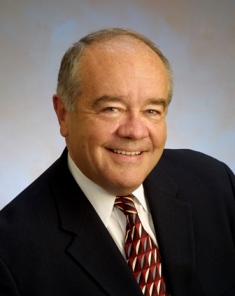
Tim Timmons
“Identify the activity of God and join Him.”
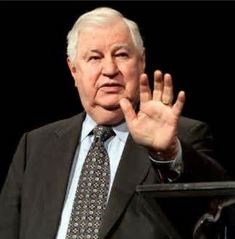
Henry Blackaby speaking
With 2,000 years of Church history and tradition, one of the big challenges, especially in the Modern Western World, is to get back to the roots and essentials of what it means to be a follower of Jesus and become reproducing disciple makers. It’s not enough to proclaim the Good News of Jesus, people need to hear it, understand it, be able to respond to it, process it, remember it and pass it on to others. In other words, reproducibility is the key to the gospel spreading to all people, everywhere.
A big challenge is understanding how most of the people of the world prefer to learn, communicate and process information. However, it’s more than the transfer of information, it’s also an impartation of life. That, of course, is the work of the Holy Spirt, who is available to everyone born of His Spirit and indwelt by Christ.
In relation to Orality-based leadership development, the concept of training teams to train as teams is an amazingly powerful strategy. The collective knowledge and memory of a group working together with a common purpose is a more fruitful that individual efforts. In order to effectively train leaders in Oral Cultures, one needs to determine how much and what a person needs to know, and what the most appropriated methods of communication are in that context.
When we speak of Oral Cultures or Oral Learners, we are not just referring to those who have no written script (or form), no Scripture in their language, or those unable to read. Oral Learners are everywhere. Recent studies tell us that 70 to 80% of the people of the world are Oral Learners, by necessity or by preference.
Reports and testimonies of how Orality Methods are bringing transformation to individuals, families, communities, and even nations are very encouraging. It is not an exaggeration or overstatement to say that the Orality Movement is revolutionizing the ways many are thinking about communicating the gospel and making disciples. Some believe it will impact the Christian world in increasing ways in the days ahead.
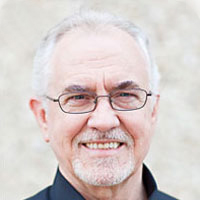 Many impact stories, testimonies, articles, journals and case studies can be found here on the website of the International Orality Network, as well as information and online registration on the upcoming North America Regional ION Conference.
Many impact stories, testimonies, articles, journals and case studies can be found here on the website of the International Orality Network, as well as information and online registration on the upcoming North America Regional ION Conference.
About the writer:
Jerry Wiles is President Emeritus of Living Water International and serves on the advisory council and leadership team of the International Orality Network. He can be reached at: [email protected].
« Overcoming Obstacles by Recording Scripture Finally knowing what it means to depend on Christ »
